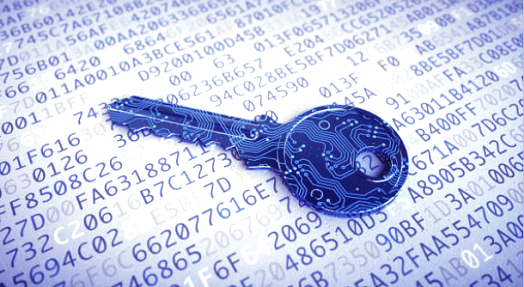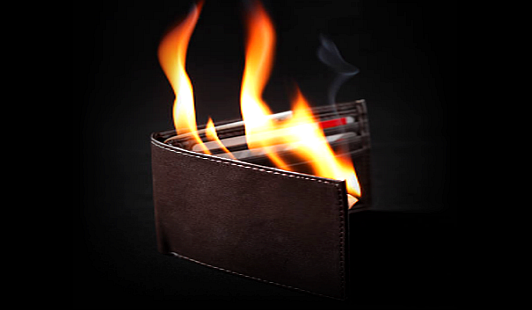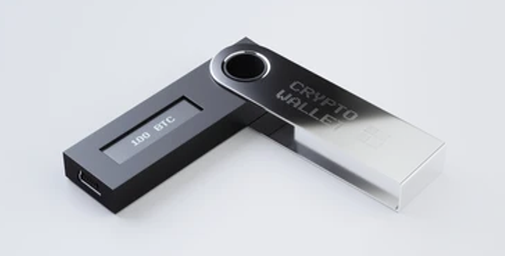Accredited InvestorsAltcoinAnatoli UnitskyAnti-Money Laundering (AML) In CryptoAPIArbitrageArtCoin TokenArticle DirectoryASICAuction Terminology GlossaryBasics of Stock Market InvestingBear MarketBest Crypto Payment Provider In the WorldBitcoinBlockchainBlockchain ConfirmationBlockchain Consensus MechanismBlockchain ForkBlockchain GlossaryBored Ape Yacht ClubBuild a Business That OutperformsBull MarketBuying SkyWay SharesByzantine Fault Tolerance (BFT) ExplainedCasascius CoinCentral Bank Digital Currency (CBDC)Centralized Crypto ExchangeCoinCoinsetCold WalletCollateralCommodity Futures Trading Commission (CFTC)Cross-Chain TechnologyCRUCrypto ExchangeCrypto GlossaryCrypto JokesCrypto Terms to KnowCrypto TickerCryptocurrencyCryptographyCryptojackingCryptounit BlockchainCryptounit GlossaryCryptounit ProgramdApp (Decentralized Application)Dead CoinDecentralized Exchange (DEX)Decentralized Finance (DeFi)Difference Between Bitcoin and EthereumDifferent Ways of Investing MoneyDigital CurrencyDistributed LedgerDo Your Own Research (DYOR)Dollar Cost Averaging (DCA)Dow Jones Industrial Average (DJIA)EncryptionERC-20ERC-721EthereumEvoScentFear Of Missing Out (FOMO)Fear, Uncertainty and Doubt (FUD)Fiat MoneyFNT Fintech CompanyGenesis BlockGlobal Unit PayGlossary of Banking TermsGlossary of Business TermsGlossary of Financial TermsHalvingHODLHot WalletHow Do I Start InvestingHow Rich is Satoshi Nakamoto?How to Create a BlockchainHow to Find Private InvestorsHow to Get Into FintechHow to Program Smart ContractsI Am Thrilled to Be a Part of This Global ProjectInitial Coin Offering (ICO)Initial Public Offering (IPO)Initial Token Offering (ITO)Innovation Basalt TechnologyInnovative Transportation TechnologiesInternational Bank Account Number (IBAN)Investing in Gold Mining StocksInvesting in Gold MiningJagerJoy of Missing Out (JOMO)Know Your Customer (KYC)LedgerLiquidity in CryptocurrencyMaker and Taker Fees in Crypto TradingMarket Capitalization (Market Cap)Meme CoinMetal Credit CardMetaMaskMillenials Now Have Access to Generational WealthMy Best Investment EverNew Digital EvolutionNFT GlossaryOff-Chain TransactionsOn-Chain TransactionsOpen Edition NFTPeer-to-Peer (P2P)Personal Loan GlossaryProbably the Best STO on the MarketProof of Stake (PoS)Real Estate Glossary of TermsReal Estate Investing GlossaryRebase TokenSecurities and Exchange Commission (SEC)Security Token ExchangesSecurity Token Offering (STO)Soulbound Decentralized Identities for Security TokensSoulbound ID Launch by Stobox Proves a SuccessSoulbound TokensStoboxStock Market GlossaryTestimonialsTether Platform and Token (USDT)UnitEx ExchangeUnitsky String TechnologiesUNTBUSDUValidatorWe Started Investing When We Were 25What are Blue Chip NFT?What are Blue Chip Stocks?What are Crypto Assets?What are Crypto Smart Contracts?What are CryptoPunks NFT?What are Digital Assets?What are Digital Collectibles?What are Gas Fees?What are Gas Wars?What are Hashmasks?What are Non Fungible Tokens?What are Non-Sufficient Funds (NSF)?What are Soulbound Tokens (SBT)?What are Stablecoins in Crypto?What are Transactions Per Second (TPS)?What are Utility NFTs?What are Utility Tokens?What Does Burning Crypto Mean?What Does Diamond Hands Mean?What Does Paper Hands Mean?What Does To The Moon Mean?What Does WAGMI Mean?What Happened to Satoshi Nakamoto?What is a 51% Attack?What is a Baby Boomer?What is a Backlink?What is a Banner?What is a Barcode?What is a Bid-Ask Spread in Crypto?What is a Block in Blockchain?What is a Block Reward?What is a Blockchain Address?What is a Blockchain Node?What is a Blockchain Oracle?What is a Blog?What is a Bond?What is a Bot?What is a Broker?What is a Business Accelerator?What is a Cash Cow?What is a Commercial Bank?What is a Commodity?What is a Con?What is a Credit?What is a Credit Limit?What is a Credit Rating?What is a Crypto Airdrop?What is a Crypto Bridge?What is a Crypto Scam?What is a Crypto Token?What is a Crypto Wallet?What is a Crypto Whale?What is a Crypto Winter?What is a Cryptocurrency Public Ledger?What is a Cryptocurrency Roadmap?What is a DAO?What is a Dark Pool?What is a Day Trader?What is a Dead Cat Bounce?What is a Default?What is a Derivative?What is a Digital Credit Card?What is a Fiscal Quarter?What is a Fungible Token?What is a Governance Token?What is a Grace Period?What is a Hard Fork?What is a Hot Wallet?What is a Hybrid Blockchain?What is a Hybrid PoW/PoS?What is a Joint Account?What is a Market Cap?What is a Merkle Tree in Blockchain?What is a Mining Farm?What is a Nonce? What is a PFP NFT?What is a POS System?What is a Prepaid Card?What is a Private Blockchain?What is a Private Key?What is a Public Blockchain?What is a Public Key?What is a Reserve Currency?What is a Ring Signature?What is a Routing Number?What is a Rug Pull in Crypto?What is a Safe Deposit Box?What is a Satoshi?What is a Security Token?What is a Seed Phrase?What is a Shitcoin?What is a Sidechain?What is a Soft Fork?What is a Spot Market?What is a State Bank?What is a SWIFT Code?What is a Tax Identification Number (TIN)?What is a Time Deposit?What is a Transaction Account?What is a Variable Interest Rate?What is a Virtual Assistant (VA)?What is a Virtual Card?What is a Virtual Currency?What is a Visa Card?What is a Whitelist in Crypto?What is a Whitepaper?What is Accounts Payable (AP)?What is AMA in Crypto?What is Amortization?What is an Accrual?What is an ACH Transfer?What is an Actuary?What is an Addendum?What is an Algorithm?What is an Angel Investor?What is an Annuity?What is an Asset?What is an ATM?What is an Atomic Swap?What is an Audit?What is an Avatar?What is an EIN?What is an Embargo?What is an Entrepreneur?What is an IDO (Initial Dex Offering)?What is an Interest Rate?What is an Internet cookie?What is an Investment Bank?What is an NFT Drop?What is an NFT Floor Price?What is an Ommer Block?What is an Orphan Block?What is an Outstanding Check?What is an Overdraft?What is Artificial Intelligence (AI)?What is B2B (Business-to-Business)?What is B2G (Business-to-Government)?What is Bartering?What is Bitcoin Dominance?What is Bitcoin Pizza Day?What is Blockchain Immutability?What is Blockchain Used For?What is BRICS?What is Business-to-Consumer (B2C)?What is C2C (Customer to Customer)?What is Capitalism?What is Catfishing?What is CFD Trading?What is Check Kiting?What is Cloud Mining?What is Communism?What is Content Marketing?What is Decentralization in Blockchain?What is DeFi in Crypto?What is Delisting?What is Depreciation?What is Digital Marketing?What is Diversification?What is Double Spending?What is Dumb Money?What is Dumping?What is Earnings Per Share (EPS)?What is Economics?What is Email Marketing?What is Equity?What is Etherscan?What is Fintech?What is Foreign currency?What is Forex?What is Fundamental Analysis (FA)?What is GameFi?What is Generative Art NFT?What is Gwei?What is Hard Currency?What is Hash Rate?What is Hashing in Blockchain?What is Inflation?What is Initial Game Offering (IGO)?What is Interest?What is Interest Income?What is Mainnet?What is Mastercard?What is Metaverse in Crypto?What is Mining in Cryptocurrency?What is Minting NFT?What is Mobile Banking?What is Money Laundering?What is NFT Alpha?What is NFT Metadata?What is NFT Rarity?What is NGMI Meaning?What is Nominal Interest Rate?What is Online Banking?What is Open-End Credit?What is OpenSea NFT Marketplace?What is Personal Identification Number (PIN)?What is Play-to-Earn?What is Polygon?What is Proof of Authority (PoA)?What is Proof of Work (PoW)?What is Public Key Cryptography?What is Pump and Dump?What is Quantum Computing?What is Refinancing?What is Retail Banking?What is Ripple?What is Sharding?What is Slippage in Crypto?What is Smart Money?What is Solvency?What is Soulbound ID?What is SSL?What is Staking in Cryptocurrency?What is Technical Analysis (TA)?What is Testnet?What is the Ask Price?What is the Better Business Bureau (BBB)?What is the Bid Price?What is the Dark Web?What is the InterPlanetary File System (IPFS)?What is the Gold Standard?What is the Lightning Network?What is the Prime Rate?What is the Sandbox?What is the Secondary Market?What is the World Bank?What is Tier 1 Capital?What is Tokenomics?What is TRC-20?What is Universal Banking?What is Unspent Transaction Output (UTXO)?What is Usury?What is Volatility in Crypto?What is Wash Trading?What is Web3?What is Whisper?What is XRP?What is Zero-Knowledge Proof (ZKP)?Who is Beeple?Who is Satoshi Nakamoto?Who is Vitalik Buterin?Why Tokenization is a Safe HavenWhy You Should Try Your Hand at Trading
What is a Hot Wallet?
- Home
- Article Directory
- What is a Hot Wallet?
Getting crypto is one of the most exciting experiences in life - but don't get too ahead of yourself, you'll need a place to store it first!

A hot wallet is a crypto storage solution that allows you to store and send your digital assets quickly, conveniently, and securely. Read on to find out more about how they work, why they're important and much more!
What is a Crypto Wallet?
Just like a physical wallet, a crypto wallet is used to store funds. But unlike regular wallets, crypto wallets don't hold physical coins. Instead, the wallet stores your public and private keys which allow you to access your digital assets and transact with them on the blockchain network.
Think of crypto wallets as a kind of online bank account. You can use them to store and transact with cryptocurrency, just like you would with regular money in a traditional bank account.
The public key is used to receive funds from others, and the private key (which should be kept secure) is used to access your wallet and send funds. The wallet also allows you to view your balance, check transaction history, and more.
What is a Hot Wallet?
A hot wallet is an online crypto storage solution that allows users to quickly, conveniently, and securely store their digital assets while still being able to easily access them when needed. Unlike a cold wallet which requires physical access or hardware wallets that require additional setup steps before use; hot wallets are much more user-friendly and accessible.
Hot wallets are also known as web wallets, because they are usually cloud-based applications that can be accessed from any device with a web browser. They are typically used to store small amounts of cryptocurrency as they offer lower levels of security than other wallet types.
How Do Hot Wallets Work?
Hot wallets work using two layers of encryption; the public key, which is visible to anyone who has access to your address and allows them to send funds, and the private key, which you must securely store yourself and use to access the wallet and make transactions. Private keys are like passwords - they should never be shared or given away! When making a transaction from your hot wallet, the application will generate a string of code (known as a ‘transaction signature’) using your private key which will allow you to securely send funds from the wallet.
Hot wallets are an important part of any cryptocurrency user's portfolio, as they allow quick and easy access to digital assets while still providing a high level of security. They also offer users more flexibility in how they store and use their funds, as well as increased privacy - since no third-party is involved in making or receiving payments.
Private vs Public Keys
So far, we've discussed public and private keys; let's take a closer look at what they are and how they work.
Public key: A public key is a unique code that is generated by your wallet application which allows you to receive funds from other users. This code can be shared with anyone who wants to send you money, and it tells the blockchain network where funds should be sent.
Private Key: The private key is the opposite of the public key - it is used to access your wallet and send payments securely. It should never be shared or given away as this would allow someone else access to your funds! The private key also produces a ‘transaction signature’ for each transaction you make, so that only you can initiate payments from your wallet.
Pros & Cons of Hot Wallets
Like any other type of cryptocurrency storage solution, hot wallets have pros and cons that must be considered before using them.
Pros
1. Ease of Access - With hot wallets, you can easily access your wallet and funds from any device with a web browser.
2. Quick Transactions - Hot wallets usually have faster transaction times than other types of wallets, making them ideal for day-to-day transactions.
3. Greater Flexibility - Hot wallets allow you to easily store and manage multiple cryptocurrencies at once.
4. Increased Privacy - Since no third-party is involved in making or receiving payments, your transactions can remain private.
Cons
1. Lower Security Levels - As hot wallets are always connected to the internet, they are more vulnerable to hacking than other types of wallets.
2. Limited Funds Storage - Hot wallets usually have lower storage capacities than hardware wallets or cold storage solutions, so they may not be suitable for long-term use.
Types of Hot Wallets
There are several different types of hot wallet available; these include web/cloud wallets, desktop/mobile wallets, and paper wallets. Let’s look at each of these in more detail.
- Web/Cloud Wallets: Web wallets are cloud-based applications that can be accessed from any device with a web browser. They usually offer users increased flexibility and convenience, as well as easy access to their funds. However, they have lower levels of security than other wallet types, so should only be used for small amounts of cryptocurrency.
- Desktop/Mobile Wallets: Desktop and mobile wallets are downloaded and installed on your computer or smartphone respectively. These wallets give users greater control over their funds whilst still providing easy access - however, desktop wallets must always remain connected to the internet in order to function properly.
- Paper Wallets: Paper wallets are physical documents that contain your public and private keys, as well as a QR code that can be scanned to access your funds. They offer users offline storage, meaning they are highly secure - however, they are vulnerable to physical damage or theft, so it is important to keep them in a safe place.
Hot Wallet Security Tips
Although hot wallets have lower security levels than other types of cryptocurrency storage solutions, there are steps you can take to ensure the safety of your funds:
1. Use two-factor authentication (2FA) whenever possible - this requires an additional code or fingerprint scan before accessing your wallet.
2. Regularly back up your wallet data - this will enable you to restore any lost data if something goes wrong.
3. Be aware of phishing scams - never enter your private key or PIN on a website you do not trust.
4. Avoid public wifi networks - these are more vulnerable to hacking than private connections.
5. Set up a secure password and/or PIN - using a complex combination of numbers, letters and symbols will make it harder for hackers to guess.
Hot wallets are a great way to store and manage your cryptocurrency, as they offer users quick access and greater flexibility than other types of wallet. However, due to their lower security levels, it is important to take precautions when using them - such as setting up two-factor authentication and regularly backing up your data. With the right measures in place, hot wallets can be a secure and convenient way to store and transact with your crypto assets.
Related Articles

Hot Wallet
Unlike cold wallets, which are disconnected from the internet and therefore less susceptible to cyber attacks, hot wallets are more vulnerable to hacking and other security threats. This is why...

What is a Crypto Wallet?
A crypto wallet, also known as a digital wallet, is a software program that stores private and public keys for various cryptocurrencies. These keys are used to...

Cold Wallet
Many cold wallets (also called hardware wallets) are physical devices that look similar to a USB drive. This kind of wallet can help protect your crypto from...
- Home
- Article Directory
- What is a Hot Wallet?